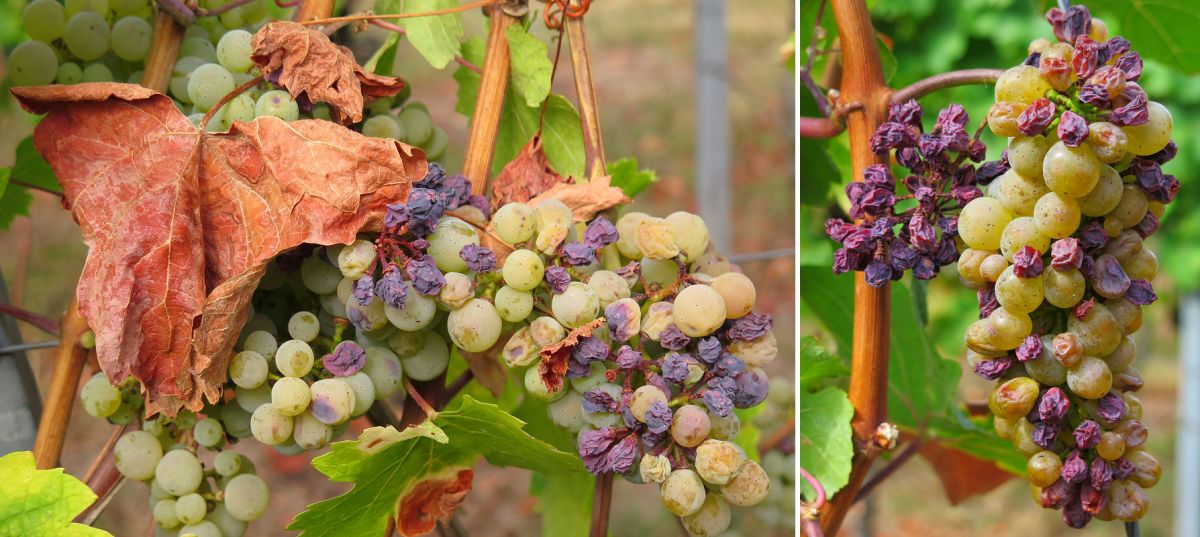Term (French: sécheresse, also drought stress) for the condition of a vine that suffers from a lack of water for various reasons. In extreme cases, this can lead to complete destruction (apoplexy). Certain grape varieties, however, have developed a resistance to dryness and drought. A balanced water regime in a vineyard is very important; too little water is just as damaging as too much. A certain (mild) water stress can even be advantageous for the quality because of the resulting lower yield. Essentially, two interacting components play a role in the water supply of the vine. These are the water storage capacity of the soil in the root zone and the humidity in the atmosphere. The coincidence of strong transpiration (evaporation) via the stomata (stomata ) of the leaves and low soil moisture is particularly negative. A soil that is too dry can be partially compensated for by sufficient humidity in cool weather.

In this case, the vine releases less moisture into the air via the leaves during the process of photosynthesis. Compensation can also be achieved by artificial irrigation, but this is not usually permitted in Europe for quality wines. Water stress symptoms on the vine are limp or wilted tendrils and later also leaves. Acute water stress can lead to chlorosis (yellowing of the leaves) and necrosis (withering of the leaves). If the water shortage occurs at the beginning of the growing season, this leads to poor fruit set and subsequently to small berries. Water stress can also be caused by roots damaged by animal pests (such as nematodes or phylloxera) or by vine diseases and thus impaired. During the ripening phase, the phenomenon of berry splitting (berry breakage) can occur. The causes are not yet clearly understood, but it is related to water supply (too much/too little). See also under abscisic acid and irrigation and also under climate.
Pictures: By Uschi Dugulin on Pixabay
Voices of our members

The glossary is a monumental achievement and one of the most important contributions to wine knowledge. Of all the encyclopaedias I use on the subject of wine, it is by far the most important. That was the case ten years ago and it hasn't changed since.
Andreas Essl
Autor, Modena